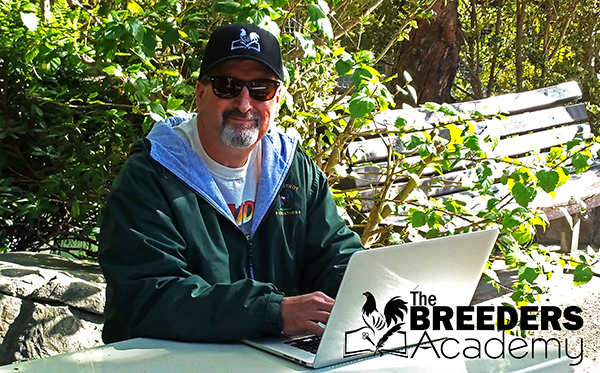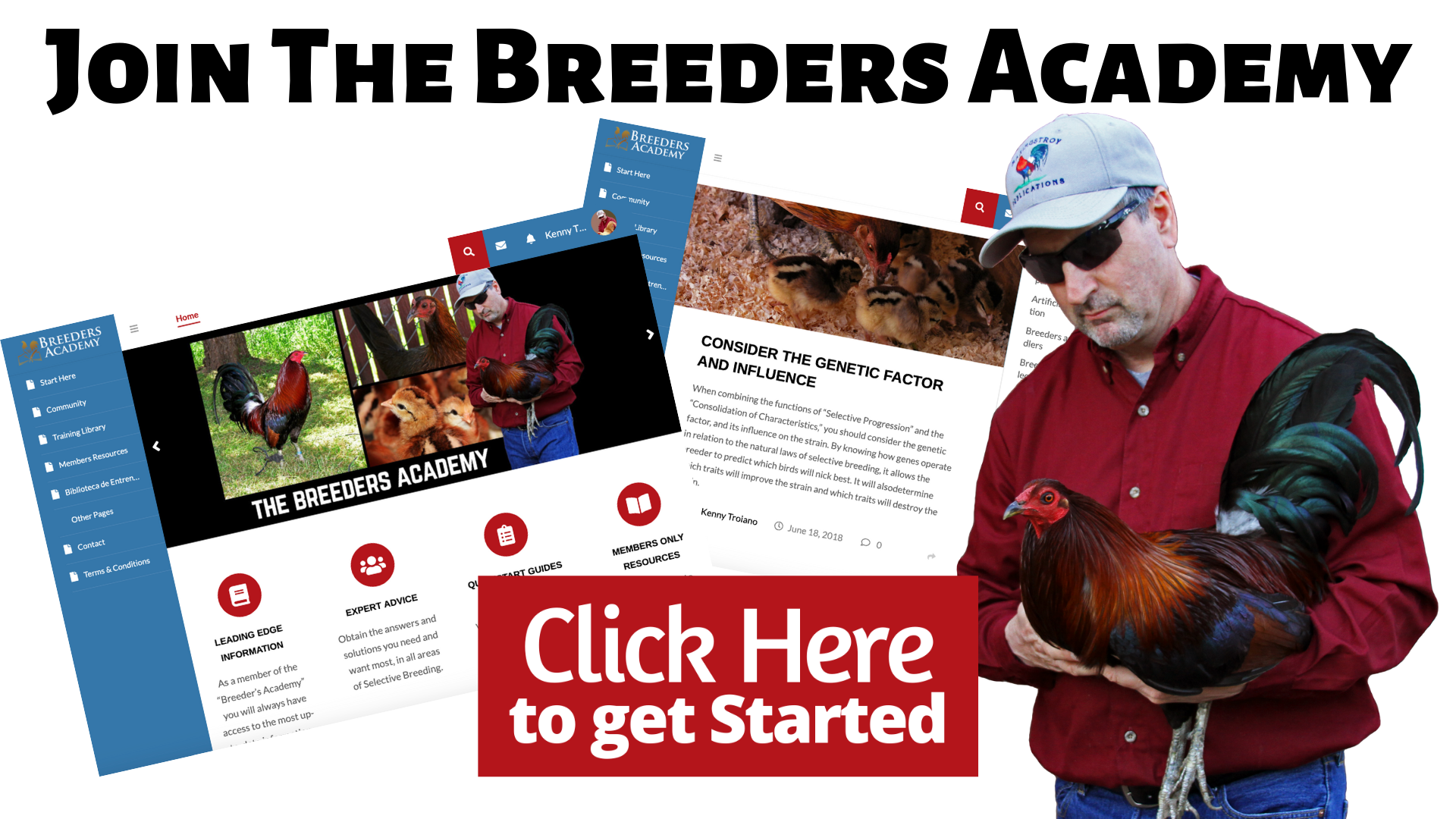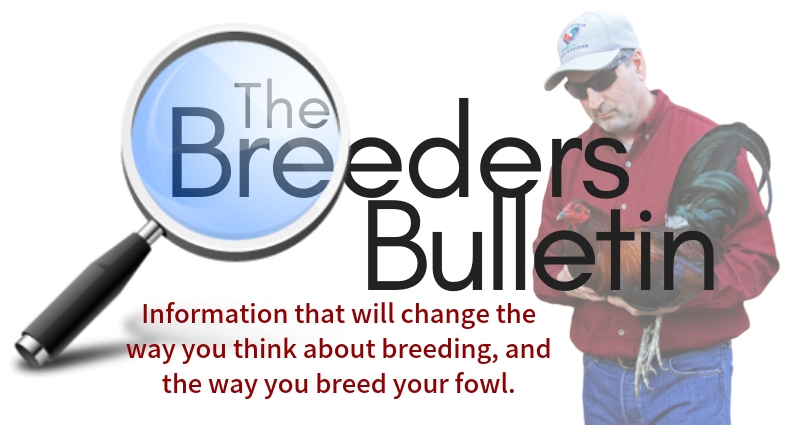But only when put to proper use!
By Kenny Troiano
 For over 50 years I have raising and bred chickens and American Games, and in that time, I have had the pleasure and privilege of talking to thousands of breeders throughout the world, and what I have come to realize is this: We all share the same common interest” – to attain high quality, high caliber fowl, and to see them improve each and every generation.
For over 50 years I have raising and bred chickens and American Games, and in that time, I have had the pleasure and privilege of talking to thousands of breeders throughout the world, and what I have come to realize is this: We all share the same common interest” – to attain high quality, high caliber fowl, and to see them improve each and every generation.
But when I checkout many of the popular forums, and social media sites, such as Facebook, and read what they have to say, I find that it’s the ones who are the loudest that know the least. They are also the quickest to criticize others who are successful. I then remember what one of my mentors once said to me, “It’s not what you don’t know, but what you think you know that will hurt you the most.”
Very few breeders practice proven breeding methods. They often purchase hybrid fowl, and continue to add new blood each and every breeding season. They use crossbreeding and outcrossing as their only methods of breeding.
This is troubling, and sets a dangerous precedence for the future of the breed. This is true for many breeds, but especially true for American Games. The future of this breed depends on those who know what they are doing (master breeders), and on those who can teach proper breeding practices, based on proven principles, to those who need it most.
Like I’ve said many times, “If we all work harder to perpetuate superior fowl, fowl that have the complete package (good conformation of body and color of plumage, good temperament and performance/production ability), everyone benefits.”This applies to “information” as well.
To raise strong healthy fowl that are true representatives of their breed, we as breeders must use proven methods of breeding that are reliable and show constant results in the right direction. Forget the “old wives tales” and “superstitions,” for this way of thinking only slows progress. And don’t listen to those who say – “it cannot be done.”Inbreeding is a good example of this. The ones who discredit inbreeding are the ones who don’t understand the benefits of inbreeding.
I learn new things every day. I am constantly reading and putting into practice what I have learned on the art of selective breeding. And let me tell you something, not only have my skills, as a breeder, improved, but my fowl are improving each and every generation. Never do I assume that I know it all. How can I improve my skills as a breeder if I am to assume I know it all? And, how can I improve, if I think I know enough? You will never know it all, and you will never know enough.
To improve your skills as a breeder, and to improve the quality of your fowl, you must always search for new, essential, and beneficial facts. Improve your practices, and learn new principle that will help you to improve your fowl.
No matter how much you learn, or how much experience you attain, understand this – improvement comes from slow, small, incremental changes, not all at once. Most of the time progress is achieved, but there are times when you may lose ground and your fowl digresses. It happens to the best of us. This is not a sign to quite, but that you may need to change your approach a bit.
When it comes to breeding, there are no quick fixes or simple antidotes. It comes from many aspects of breeding that work in unison. Such as factors of inheritance, natural laws, proper selection and culling practices, proper methods and techniques of breeding, testing the progeny, and many other important factors. Knowing these facts and practicing them is the difference between success and failure.
Since improvements are guaranteed only when you practice many factors at the same time, my advice is to never stop learning. Continue to look for new ways to improve your fowl, and don’t listen to those who say it cannot be done. If your fowl do not look good, act well, and perform well, simultaneously, you have some work to do. Always breed to achieve the complete package, and you will create fowl that will be the envy of the world.
Trust me, it can be done!
Kenny Troiano

